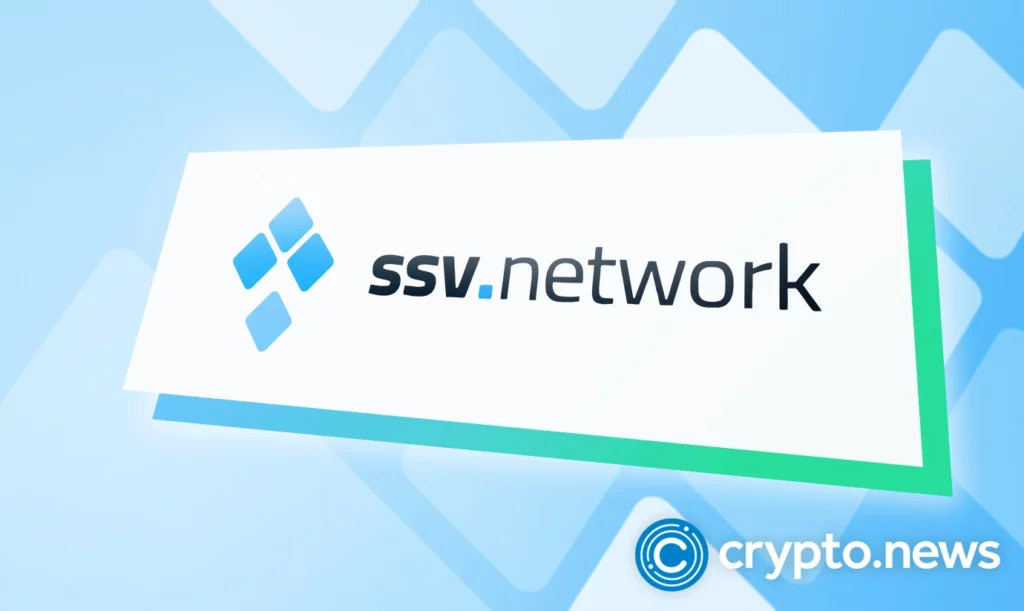
SSV.network (SSV) is a decentralized validator infrastructure provider that focuses on streamlining the development and management of Ethereum staking pools. The developer-centric approach makes the network unique. Notably, the system derives its name from Secret Shared Validators (SSV). Currently, the protocol is in use on multiple popular staking options which has helped it to continue to expand its user base.
What Problems Does SSV.network (SSV) Attempt to Fix?
The SSV.network helps to solve a major issue that threatens the security of Proof-of-Stake (PoS) networks. Centralization has hampered the expansion of ETH staking applications due to multiple reasons. For one, centralized PoS networks suffer from lower fault tolerance and less client diversity.
SSV.network introduces a distributed staking standard that enables developers to integrate staking pools into their Dapps with ease. The toolset includes solutions designed to improve the creation and motivation of large staking pools, services, individual nodes, DAOs, bridges, and institutional stakers.
Faulty Security
Security concerns have been an issue for PoS networks since their inception. These protocols provide faster transaction speeds and fault tolerance which improve overall network performance. The system accomplishes this task through the introduction of multi-node clusters versus a single validator. This structure eliminates any single point of failure from the system.
Benefits of SSV.network
Easy integration is one of the key benefits that the SSV.network (SSV) introduces to the market. The system makes it simple and fast to integrate staking features into any dapp. The system reduces the overall time it takes to program these features through the use of modular tools which improves setup times significantly.
Transparency
Another benefit that SSV.network brings to the table is added transparency. The system uses a trustless staking network that relies on multi-operator validation and openness to offer a better solution. Users can track the staking pools in real-time using a blockchain explorer which makes it 100% transparent.
Customization
There are many customization options that developers can leverage to ensure they create the most effective application for users. The program’s modularity and flexibility add to the overall usability of the system. Developers can pick and choose what tool they require to get the best results.
SSV.network Staking Applications
Another advantage is streamlined onboarding. The use of a staking pool standard makes it easier for users to become familiar with these systems. This approach improves onboarding because it reduces technical barriers which add benefits such as streamlined integration of solo stakers into the ecosystem.
Reduced Penalties
Staking penalties have been a pain for PoS network participants since day one. These penalties can destroy your rewards since they can be levied against your node for anything from losing internet connectivity briefly. This SSV Network provides a better solution by distributing validator keys across multiple validators which reduces downtime risks
High-Performance
Performance is improved versus direct staking protocols due to many factors. The introduction of a redundant Validator key reduces downtime for the entire network. This structure can support the execution of activities across nodes at the same time. Consequently, the network experiences far less congestion.
Secure
SSV.network is a noncustodial staking protocol. This option is the safest way to stake your tokens because they remain in your wallet. As such, you don’t have to worry about the pool operator getting hacked and losing your funds. It also reduces delays or other issues that have been problems for stakers in the past. The system also enables nodes to leverage a generated key that can be stored securely offline while the KeyShares that represent it operate the validator.
How Does the SSV.network Work?
The network leverages a distributed validator infrastructure and an advanced tool kit. The network introduces new staking strategies such as trustless distributed validation keys via Secret Shared Validator (SSV) technology. This approach means a validating key is split and distributed between multiple nodes.
Stakers
Users can become a staker by depositing 32 ETH into a smart contract on the beacon chain. Staking rewards are paid out in ETH but fees are paid in SSV tokens. Staking is one of the easiest ways for crypto users to secure passive income. The level of rewards you receive is based on the number of tokens you lock up.
Operators
Operators are the nodes that validate transactions. They receive SSV tokens as a reward. Interestingly, in the SSV Network, each operator can determine their fee. As such, operators can compete with other operators for stakers. Stakers may choose multiple operators to manage their validators. This beneficial competition helps to keep the fees lower.
Liquidators
The primary purpose of Liquidators is to notify stakers when they need to increase their balance with the operators. Liquidators receive a portion of the liquidated assets for their efforts.
Token – SSV
The SSV token is a new addition to the network. This flexible digital asset serves many roles. For one, it functions as a crucial element of the reciprocal rewards system that makes SSV so popular. The system requires stakers to pay SSV tokens to operators to qualify for ETH rewards. These rewards are paid directly from the blockchain.
This governance token is how users can provide their input to the network’s development and expansion. Users need to stake their SSV tokens to gain voting rights. Once staked, they can put forth proposals that get added to the community vote.
History
SSV.network was created as a joint project with the Ethereum Foundation. The platform entered the market in 2019 and has since expanded significantly. SSV.network received financial backing from some of the industry’s biggest names including DCG and Coinbase.
Final Word
SSV demonstrates how strong the demand is for ETH staking options. The system has seen massive adoption and support due to its proven results. You can expect to hear more from SSV.network as Dapps increasingly integrate these systems into their core functionalities.



















